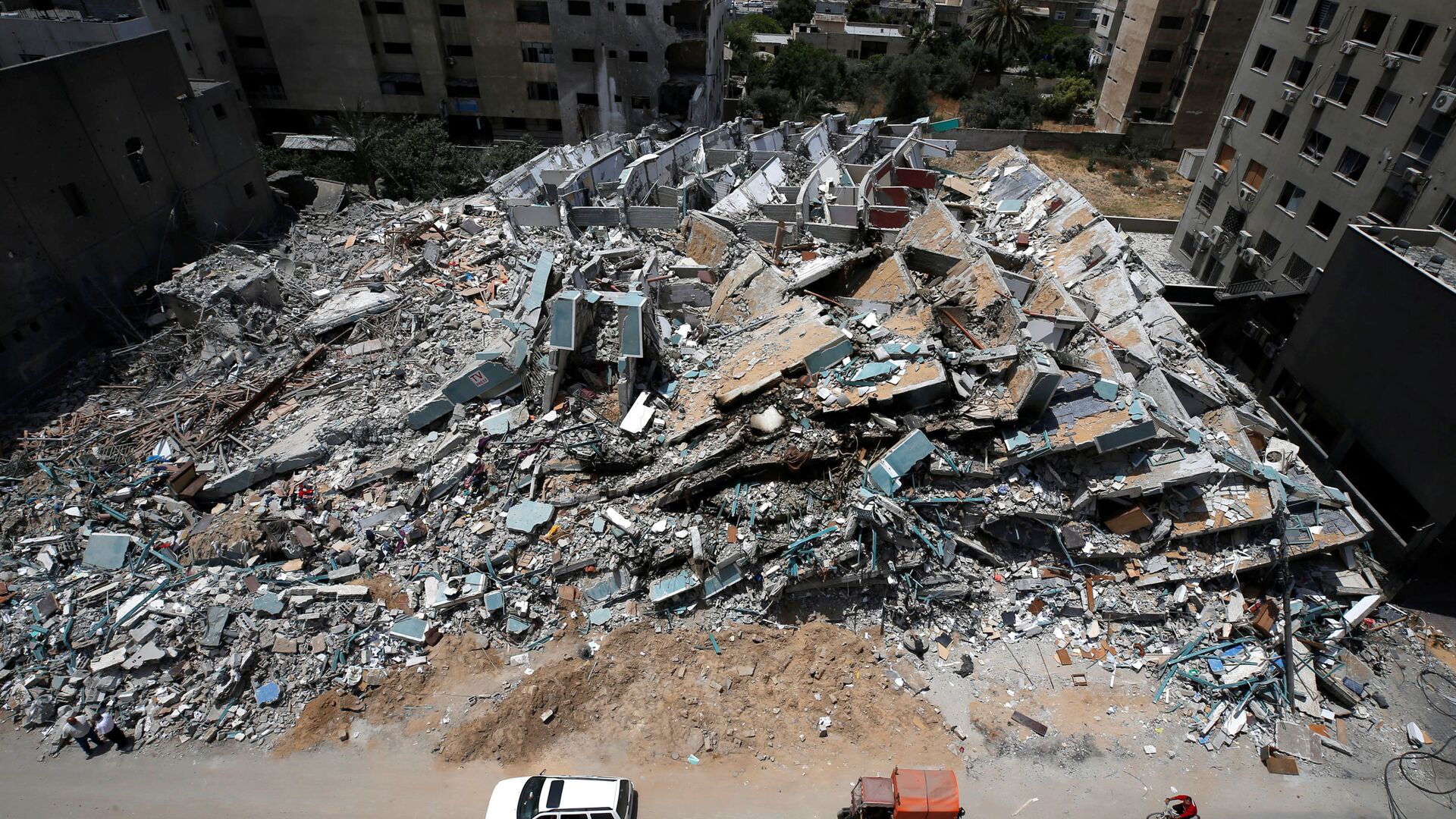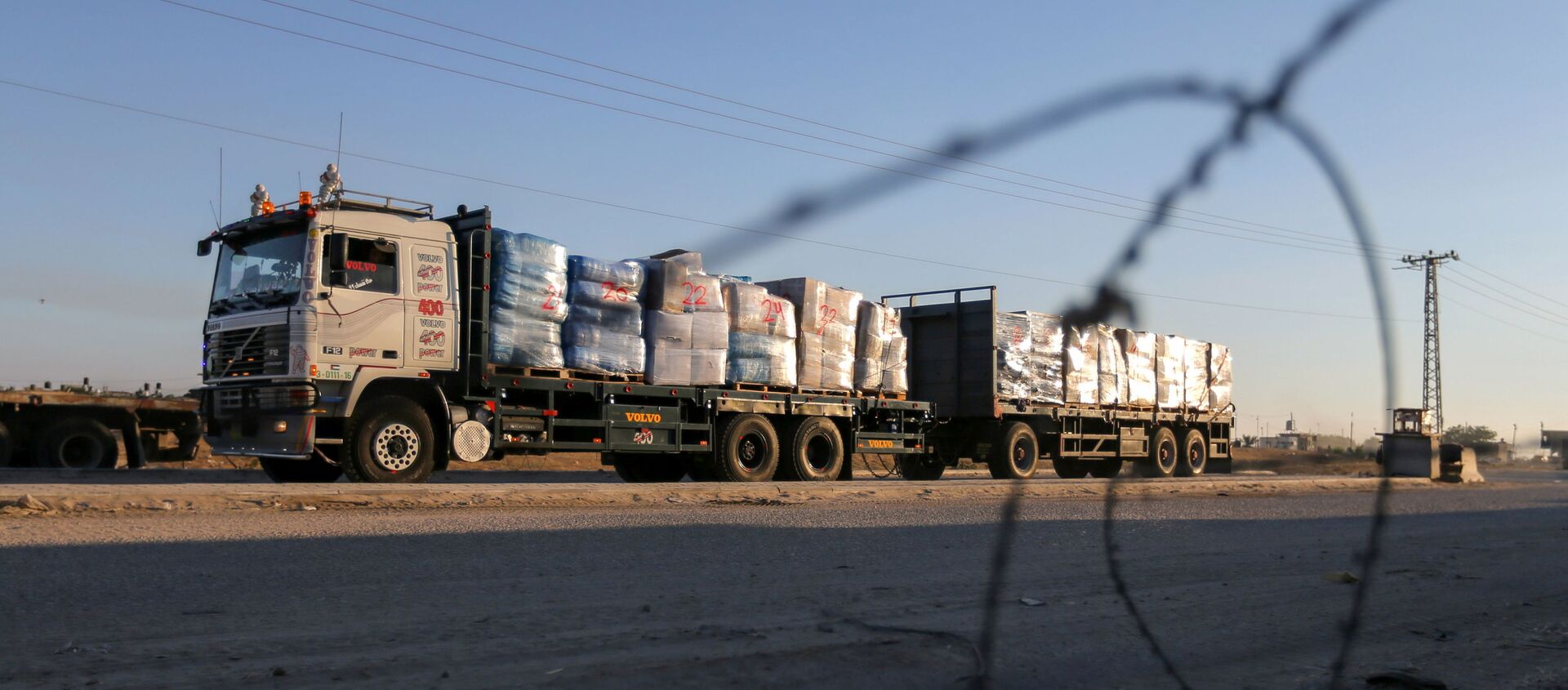A month after Israel's operation in the Gaza Strip ended, the process of rubble removal is still going on in the enclave that has seen severe damage to its infrastructure.
During the eleven days of fighting between Israel and Gaza-based militant groups, Israeli airstrikes destroyed more than a 1,000 buildings. They devastated roads, police stations, more than a dozen medical institutions, several mosques, and educational centres.
'Hope It Never Ends'
After the rubble removal is over, a process that might take several more weeks to complete, Hamas, an Islamic group that controls the Gaza Strip, will start reconstructing the enclave. But Fadi Aabed, a 32-year-old father of three from the al-Shejaeia neighbourhood in the east of Gaza City, hopes the clean up will never end. For him, it is the only means to make a living.
"I used to be a construction worker but in this job I have been unemployed for months so I didn't have a choice but to go into rubble clearing".
Every Israeli operation and the devastation it causes, brings Aabed some cash that keeps his family afloat but the price he pays is at times way too high.
"When I just started working after the war [Operation Guardian of the Walls] was over, I felt like I was hearing the voices of victims, who were stuck underneath the rubble. I imagined that my family members were there".
Aabed recalls that he imagined his youngest daughter in her place and he kept crying and praying that she would eventually survive, unlike her parents, who met their death in that residential building.
The 32-year-old says that most of the time he tries to brush off these and similar memories and thoughts. He realises that for him rubble clearance is a business aimed at keeping his family afloat.
But earning only 30 NIS or approximately $9 a day, Aabed confesses that he is struggling to provide his three children and two elderly parents with the basic necessities.
"I am the only breadwinner in my family and you cannot imagine how difficult it is not to be able to provide my children with the basics", he complained.
Aabed is not the only one suffering hardships. The Gaza Strip has been mired in a dire economic situation for years but it has only become worse with the outbreak of the coronavirus pandemic, which pushed unemployment and poverty rates in the Strip to unprecedented heights.
COVID-19 is far from being over in the enclave, and this means the unemployment cycle is expected to expand. Aabed is aware of the situation and says he is scared of what the future might hold for him.
"When the removal process is over, myself and many other people like me will lose our only source of income. I will stay home and suffer because I will not be able to provide for my family".
Yet, Aabed knows that he will not be unemployed for too long. Known for its instability, the Gaza Strip has seen multiple military escalations with Israel, which quite often results in the partial destruction of the enclave.
Such was the case in 2008 during "Operation Cast Lead". It was the case in 2012 and in 2014 as well, when the damage to Gaza stood at roughly $6 billion dollars. Aabed thinks it will happen again, it is only a matter of when, not if.
Then, he says, he will go back to the work cycle. "I will surely go into the rubble clearing job again, if needed, and I hope that it will stay with me forever, not only for a limited period of time".



